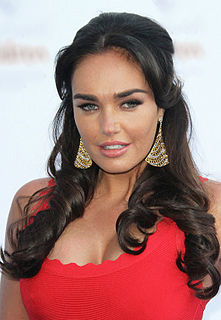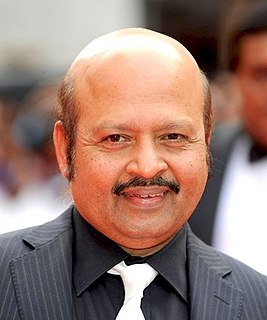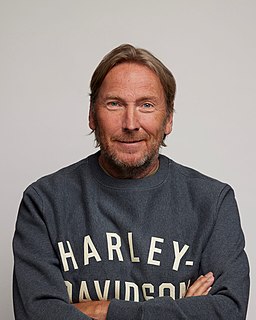A Quote by Craig Revel Horwood
Actors are very emotional, whereas sports people are used to criticism.
Related Quotes
I don't have a very high opinion, actually, of the world of criticism - or the practice of criticism. I think I admire art criticism, criticism of painting and sculpture, far more than I do that of say films and books, literary or film criticism. But I don't much like the practice. I think there are an awful lot of bad people in it.
American actors are very different to British actors who have generally studied and been brought up culturally with the sense that the writer is the star and that their job is to serve the writing. Whereas Hollywood actors are brought up to believe that the actor is the star, and everything and everybody is in the service of them.
Often you find actors have big hearts; they're quite emotional people. Talking to actors who date other actors, and talking to people who deal with other actors, they often get emotionally caught up in lots of different things. They often wear their hearts on their sleeves. They feel things quite a lot - often to the nth degree, which I can imagine could make it quite difficult to date some of us. I think it's about having an emotional availability that you can kind of draw on. But I'm also searching for that. I'll be searching for the answer to that question for the rest of my life.
I think we've reached that point where we understand medically what we are doing to ourselves with these sports. In football, it's kind of hard to get the access that you want for the story and, of course, it's very long-term: the effects of the repeat concussions really don't hit until decades afterwards, whereas the traumatic injuries in extreme sports are very immediate. I realized Traumatic Brain Injury was a fascinating and important story that not had been told very much. I wanted to know more.
I'm always very careful to make the distinction between music criticism and music journalism. A lot of people don't. But criticism doesn't require reporting. You can write criticism at home in your underwear. On the other hand, journalism takes legwork - you have to get out there and see things and talk to people.
People are very uncomfortable when you call actors artists because there are a lot of actors out there that aren't artists - there are a lot of actors that are hired for very specific reasons that are shallow and have to do with sexual currency and what the industry thinks sells. Real actors are artists, they're expressionists.
People are more interested in reading bombastic ideas, whether they're positive or negative. Part of me has sort of lost interest in doing criticism because of that. I've always realized that criticism is basically autobiography. Obviously in my criticism, it's very clear that it's autobiography, but I think it's that way for everybody.
We decided that sports, lifestyle and fashion were three elements that could be mixed together to a very unique formula. That's what we did: make Puma a very sports-fashion brand when, at the times, everybody talked about sports and sports performance and functionality. We said, 'Well, it's about more.'






































